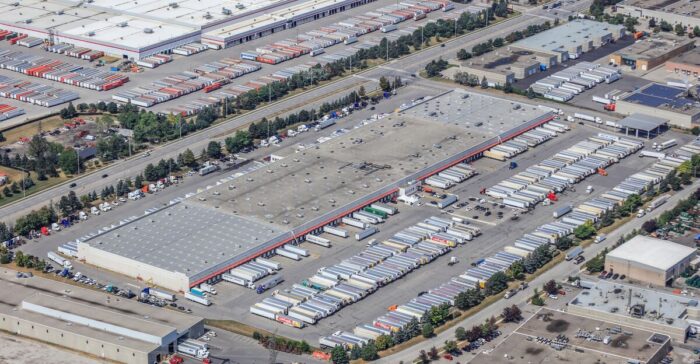
When it comes to owning a business, having a warehouse to store inventory and equipment is often essential. However, buying a warehouse is a significant investment, and there are many factors to consider before making a purchase. In this article, we will explore the costs associated with buying a warehouse and what you need to know before making a purchase.
The Initial Cost of Buying a Warehouse
The initial cost of buying a warehouse can vary significantly depending on several factors, including location, size, and condition. In general, if you want to find a warehouse located in a prime area this will cost more than those located in less desirable areas. Additionally, the larger the warehouse, the more expensive it will be. The condition of the warehouse will also play a significant role in the price, with newer and better-maintained warehouses typically costing more.

Additional Costs to Consider
In addition to the initial purchase price of the warehouse, there are several additional costs to consider. These may include:
- Property taxes: As a property owner, you will be responsible for paying property taxes on the warehouse. The amount will depend on the value of the property and the tax rate in your area.
- Insurance: You will need to purchase insurance to protect your warehouse and its contents from damage or theft. The cost of insurance will depend on the value of the property and the level of coverage you require.
- Maintenance and repairs: Like any property, a warehouse will require regular maintenance and repairs to keep it in good condition. You will need to budget for these costs, which can include things like HVAC repairs, roof repairs, and pest control.
- Utilities: You will need to pay for utilities such as electricity, water, and gas to keep the warehouse running. The cost will depend on the size of the warehouse and your usage.
Financing Options
Starting a business is an exciting endeavor, but it requires financial resources, and sometimes you need to explore financing options to make your dream a reality. When it comes to purchasing a warehouse for your business, there are several financing options available that you can consider.
Traditional Loans

One of the most common financing options for buying storage is through traditional loans from banks or credit unions. These loans typically have fixed interest rates and repayment terms, ranging from 5 to 30 years. To qualify for these loans, you need to have a good credit score, a solid business plan, and collateral to secure the loan.
SBA loans
The Small Business Administration (SBA) provides loans to small businesses, including those looking to purchase commercial real estate. SBA loans have lower down payments and longer repayment terms compared to traditional loans. However, the application process for SBA loans can be lengthy, and the approval criteria can be strict.
Commercial real estate loans

Commercial real estate loans are another financing option that you can consider when purchasing a warehouse. These loans are usually offered by banks or private lenders and have competitive interest rates and flexible repayment terms. To qualify for these loans, you need to have a good credit score, a down payment of at least 20%, and a solid business plan.
Leasing
Another option to consider is leasing a warehouse instead of purchasing one outright. Leasing allows you to rent a repository for a set period, typically between one and ten years, and pay monthly rent. Leasing can be a good option if you don’t have the funds to purchase a depository outright, but still need a space for your business operations.
Location Considerations
When looking to purchase a warehouse, one of the most critical considerations is the location. The location of the storehouse can impact the price, operating costs, and accessibility to customers and transportation.

Urban vs. Rural Areas
The location in urban areas may have higher real estate costs but can be advantageous for businesses that require proximity to customers and suppliers. Warehouses located in urban areas also provide easier access to transportation and distribution networks, which can save on shipping and handling costs. On the other hand, storage located in rural areas may be less expensive but may require higher transportation costs and be less accessible to customers.
Accessibility
When choosing a location, it is essential to consider its accessibility. Factors such as the proximity to highways, airports, and shipping ports can impact transportation costs and shipping times. In addition, the availability of public transportation and parking can also impact the accessibility to customers and employees.
Zoning and Regulations
When considering a warehouse location, it is essential to check zoning laws and regulations. Zoning laws can impact the type of businesses that can operate in a particular area and the type of activities that can take place within the repository. It is crucial to ensure that the zoning laws are compatible with the business’s operations to avoid any legal issues.

Legal Considerations
When purchasing it, it is important to consider any legal issues that may arise. This will help you avoid any legal and financial repercussions that may arise later.
Zoning Restrictions
Zoning restrictions vary by location, and it is important to understand them before purchasing a storehouse. Zoning laws regulate what types of activities can take place within a particular area, and it is important to ensure that the intended use of the storage complies with local zoning laws. Failure to comply with zoning laws can result in fines or legal action.

Environmental Concerns
Before purchasing a repository, it is important to conduct an environmental assessment of the property. This can help identify any environmental issues that may exist on the property, such as contamination from hazardous materials. It is important to understand the extent of any environmental issues and the potential costs associated with remediation.
Conclusion
In conclusion, buying a warehouse is a significant investment that requires careful consideration of several factors. Understanding the initial costs, additional costs, financing options, location considerations, and legal considerations will help you make an informed decision and ensure the long-term success of your business.
















